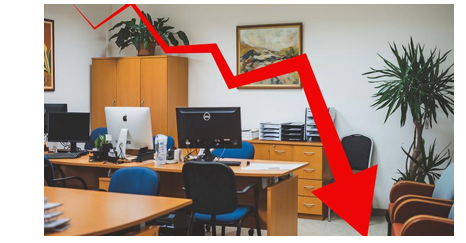INP-WealthPk
Muhammad Saleem
Small and medium enterprises (SMEs) are an integral part of the local and national economy. However, this sector is facing multiple challenges, straitjacketing its growth.

Faisal Mahmood, an entrepreneur, told WealthPK that the most significant hurdles to SME growth were the high cost of energy, red tape, limited access to financing, and lack of support from the policymakers. He lamented that the policymakers and bureaucrats were quick to line their pockets but nowhere to be found when the small entrepreneurs sought help. He warned that the current regulatory environment was creating issues for all segments, especially SMEs, and the situation would worsen if the system was not improved. “If you want to start a new venture, you will have to jump through hoops because of the opaque bureaucratic processes that make it difficult for the entrepreneurs to navigate the legal requirements, obtain necessary permits, and comply with regulations.” “Such negative tactics drive up the operational costs, waste time, and discourage potential entrepreneurs from launching businesses in Pakistan,” he added.
Faisal urged the rulers to help the entrepreneurs by revamping the current regulatory system, as registering a business involves multiple departments. Each state-run department has its own set of requirements and timelines, which expose the entrepreneurs to mental torture. Shedding light on the tax system, he noted that tax compliance was another major hurdle, as the system was complex and hard for the SMEs without the help of legal experts. He explained that the labour regulations were also a stumbling block for the SMEs, as the owners were unable to hire and manage their workforce flexibly. Similarly, another challenge for the SMEs is to protect their ideas and innovations due to the weak enforcement of the intellectual property laws. He emphasized that only the policymakers could protect the SMEs’ rights by strictly enforcing the intellectual property laws.

Dr. Ahsan, an economics teacher at a state-run university, told WealthPK that financing was the lifeblood of any business. Unfortunately, in Pakistan, the SME sector has to struggle a lot to obtain loans at reasonable rates. He explained that lack of capital could limit one’s ability to invest in technology, expand operations, or even manage day-to-day expenses. One can observe that the governments worldwide help entrepreneurs, as the policymakers understand that only businesses can create jobs and revenue to strengthen the economy. Talking about the alternative funding sources, he suggested that the government must launch microfinance institutions to help the SMEs. He noted that seeking loans from the traditional banks was a daunting task for the SMEs in Pakistan. Microfinance institutions can help the SMEs grow and create more jobs, he believed.
The State Bank of Pakistan has launched some schemes to promote SME financing. Ironically, such efforts seem insufficient to bolster this sector, which is struggling with exorbitant energy costs. He said the uncertainty prevailing in the country was also restricting peer-to-peer lending and crowdfunding. Venture capital and angel investing concepts are gaining traction globally, but we are unaware of the importance of these ventures, he added. Talking to WealthPK, Saeed Rizvi, a business consultant, highlighted the issue of infrastructure deficits, particularly in the energy sector. He said frequent power outages and high electricity costs were leading to a decline in production and an increase in rates. “How can a business survive and thrive in such circumstances?” he said, adding, “The SME sector is providing jobs to millions of people, and the rulers must move to protect them from the odds.”
Credit: INP-WealthPk













